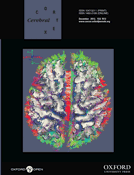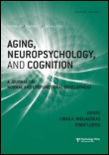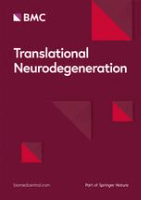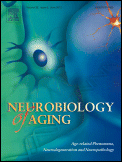
Frontiers in Aging Neuroscience
Scope & Guideline
Bridging Science and Aging for Cognitive Excellence.
Introduction
Aims and Scopes
- Cognitive Aging and Neurodegeneration:
Research exploring the mechanisms behind cognitive aging, Alzheimer's disease, Parkinson's disease, and other neurodegenerative disorders, aiming to identify biomarkers and therapeutic targets. - Neuroinflammation and Immunity:
Studies investigating the role of neuroinflammation, immune responses, and their implications in aging and neurodegenerative diseases. - Translational and Clinical Research:
Focus on translating basic research findings into clinical applications, including novel therapeutic strategies, clinical trials, and population-based studies. - Biomarkers and Diagnostics:
Identification and validation of biomarkers for early diagnosis and monitoring of neurodegenerative diseases, utilizing advanced neuroimaging and biofluid analyses. - Lifestyle and Behavioral Interventions:
Examining the effects of physical activity, diet, and non-pharmacological interventions on cognitive function, brain health, and quality of life in older adults. - Technological Innovations:
Application of machine learning, artificial intelligence, and digital health technologies in the assessment, diagnosis, and treatment of cognitive impairments.
Trending and Emerging
- Gut-Brain Axis Research:
An increasing number of studies are focusing on the interactions between gut microbiota and brain health, emphasizing the impact of diet and gut health on neurodegenerative diseases. - Neuroimaging Techniques:
There is a growing trend in utilizing advanced neuroimaging techniques, such as functional MRI and PET scans, to study brain connectivity, structure, and function in aging populations. - Digital Health and Telemedicine:
Emerging research is exploring the use of digital health technologies, telemedicine, and remote monitoring to assess cognitive function and deliver interventions for older adults. - Machine Learning and AI Applications:
The application of machine learning and artificial intelligence in predicting cognitive decline, classifying neurodegenerative diseases, and analyzing complex datasets is rapidly increasing. - Interdisciplinary Approaches:
There is a marked trend towards interdisciplinary research that integrates insights from neuroscience, psychology, gerontology, and public health to address the complexities of aging. - Resilience and Protective Factors:
Research is increasingly focusing on identifying resilience factors and protective behaviors that may mitigate cognitive decline and promote healthy aging.
Declining or Waning
- Traditional Pharmacological Approaches:
There is a noticeable decrease in studies focused solely on traditional pharmacological treatments for neurodegenerative diseases, possibly due to a shift towards exploring combination therapies and lifestyle interventions. - Single Modality Studies:
Research that exclusively utilizes a single modality (e.g., only MRI or only blood biomarkers) has seen a decline, suggesting a move towards integrative and multimodal approaches that combine various types of data. - Basic Mechanistic Studies Without Clinical Relevance:
Basic research that does not connect findings to clinical applications or implications is becoming less prevalent, as researchers increasingly aim to bridge the gap between laboratory studies and real-world applications. - Animal Models Lacking Human Relevance:
The prevalence of animal studies that do not adequately model human conditions or translate findings into human applications is waning, as emphasis shifts towards more clinically relevant models.
Similar Journals

CEREBRAL CORTEX
Unveiling the mysteries of brain function.CEREBRAL CORTEX, published by Oxford University Press Inc, is a premier journal dedicated to advancing the field of neuroscience, specifically focusing on the cellular, molecular, and cognitive aspects of cortical structure and function. With an impressive impact factor that situates it in the top quartile (Q1) of its categories for 2023, this journal holds significant relevance for researchers and professionals interested in the latest discoveries and methodologies in both Cognitive Neuroscience (ranked #31 out of 115) and Cellular and Molecular Neuroscience (ranked #48 out of 97). Operating without an open access model, it ensures rigorous peer review and dissemination of high-quality research from across the globe. Since its inception in 1991, CEREBRAL CORTEX has established itself as a critical platform for educators and inventors, pushing the boundaries of knowledge in understanding brain function and its implications for behavior. Researchers and students alike will find this journal an invaluable resource for both foundational and cutting-edge studies in neuroscience.

AGING NEUROPSYCHOLOGY AND COGNITION
Transforming insights into aging and cognition.AGING NEUROPSYCHOLOGY AND COGNITION, published by ROUTLEDGE JOURNALS, TAYLOR & FRANCIS LTD, is a leading scholarly journal that spans the interdisciplinary fields of psychology, neuropsychology, and gerontology. With a strong focus on understanding aging processes and cognitive function, this journal serves as a critical platform for researchers, clinicians, and students dedicated to advancing knowledge in the realm of cognitive aging. The journal, established in 1994, presents high-quality research articles, comprehensive reviews, and innovative studies that contribute to the discourse surrounding mental health and aging. Notably, it has been recognized with a 2023 Q2 ranking in Experimental and Cognitive Psychology and Neuropsychology categories, reflecting its significant impact within these domains. The journal includes open access options, making it widely accessible to a global audience. Researchers interested in the latest findings and theoretical developments in aging neuropsychology will find this journal an invaluable resource, further enhanced by its robust Scopus rankings and commitment to academic excellence through 2024 and beyond.

Translational Neurodegeneration
Expanding Knowledge in Cellular and Cognitive NeuroscienceTranslational Neurodegeneration, an esteemed journal in the field of neuroscience, is published by BMC and has been an open access platform since 2012, delivering high-quality research from its base in the United Kingdom. With an impressive impact factor reflecting its significant contributions, this journal focuses on critical advancements in cellular and molecular neuroscience, cognitive neuroscience, and clinical neurology, boasting a Q1 ranking across all these categories as of 2023. Researchers and professionals benefit from its extensive reach, characterized by exceptional Scopus rankings that place it in the top percentile of its field. The journal serves as a vital resource for academics and healthcare practitioners alike, aiming to bridge the gap between laboratory discoveries and clinical applications, thereby enhancing understanding and treatment of neurodegenerative diseases. With its commitment to open access, Translational Neurodegeneration ensures that its published research is accessible to a global audience, promoting collaboration and knowledge exchange within the scientific community.

npj Aging
Connecting scientists and clinicians in the study of aging.npj Aging, published by Nature Publishing Group, is a pioneering journal dedicated to advancing our understanding of the biological, clinical, and social aspects of aging. With an E-ISSN of 2731-6068, this open-access journal aims to foster innovative research and interdisciplinary dialogue among scientists, clinicians, and policy-makers. As of its inception in 2023, the journal has quickly established itself within the scholarly community, ranking 15th in Medicine (Geriatrics and Gerontology) and 12th in Biochemistry, Genetics, and Molecular Biology focusing on Aging, reflecting a strong percentile standing in both categories. The journal provides a platform for disseminating important findings that address the complexities of aging, ensuring accessibility for a broader audience. Located at the Macmillan Building, 4 Crinan St, London, England, npj Aging aspires to be an essential resource for those seeking to enhance their understanding and contribute to the field of gerontology.

BRAIN AND COGNITION
Fostering Innovation in Cognitive ScienceBRAIN AND COGNITION, published by Academic Press Inc Elsevier Science, stands as a vital resource for researchers and practitioners in the realms of cognitive neuroscience and psychology. Established in 1982, the journal has continuously evolved, showcasing cutting-edge research that bridges the understanding of brain functions and cognitive processes up to 2024. With an impressive impact factor reflecting its commitment to high-quality scholarship, the journal currently holds a prestigious Q1 ranking in Arts and Humanities (miscellaneous) and notable Q2 rankings in various psychology fields, including Cognitive Neuroscience, Developmental and Educational Psychology, Experimental and Cognitive Psychology, and Neuropsychology. This multidisciplinary journal cultivates a rich academic dialogue, offering valuable insights to professionals, researchers, and students alike. Although it does not offer open access, its robust indexing in Scopus and consistent contribution to important discussions in cognitive research define its critical role in advancing knowledge and innovation in the cognitive sciences.

NEUROBIOLOGY OF AGING
Bridging Research and Innovation in Aging NeuroscienceNEUROBIOLOGY OF AGING, published by Elsevier Science Inc, is a premier journal dedicated to advancing our understanding of the complex interactions between the aging process and neurobiological mechanisms. With an ISSN of 0197-4580 and E-ISSN 1558-1497, the journal has established itself as a critical resource in the fields of Aging, Developmental Biology, Geriatrics and Gerontology, Clinical Neurology, and Neuroscience. Boasting a Q1 ranking in multiple categories, the journal is positioned within the top echelons of scholarly publication, underscoring its significant impact with an impressive Scopus ranking in various subfields. Committed to disseminating high-quality, peer-reviewed research, NEUROBIOLOGY OF AGING welcomes original articles, reviews, and research notes aiming to uncover the underlying processes of aging on the nervous system, fostering collaboration among researchers, professionals, and students alike. Although primarily subscription-based, the journal continues to play a vital role in shaping the discourse on aging and neurobiology, making it an essential publication for those engaged in this dynamic field.

Brain Connectivity
Unraveling the Mysteries of Brain Connectivity.Brain Connectivity is a premier journal dedicated to advancing the understanding of neural connections and brain function through innovative research and interdisciplinary collaboration. Published by MARY ANN LIEBERT, INC, this journal has established itself in the field of neuroscience, earning a respectable Q2 ranking in the 2023 category of Neuroscience (Miscellaneous) and a Scopus rank of 61 out of 113 in General Neuroscience. Since its inception in 2011, Brain Connectivity has been at the forefront of research on the intricate web of brain networks, exploring topics such as functional connectivity, neuroimaging, and the implications of connectivity studies for understanding various neurological disorders. Researchers, professionals, and students benefit from comprehensive access to cutting-edge studies and critical reviews, fostering a deeper appreciation of brain dynamics. As the field evolves, Brain Connectivity remains a vital resource for those aiming to contribute to our growing understanding of brain architecture and function.

NEUROREPORT
Advancing the frontiers of neuroscience.NEUROREPORT is a distinguished journal in the field of neuroscience, published by Lippincott Williams & Wilkins. With an ISSN of 0959-4965 and an E-ISSN of 1473-558X, the journal has established itself as a vital platform for disseminating innovative research and developments in the dynamic area of neuroscience since its inception in 1990. Currently, it is positioned in the Q3 category of the 2023 Journal Rankings, reflecting its respectable standing within the community of neuroscience professionals, ranked #74 out of 113 in general neuroscience on Scopus, placing it in the 34th percentile. While it operates on a traditional subscription model, NEUROREPORT is committed to fostering knowledge sharing in the realm of neurobiology, neuropharmacology, and cognitive studies among researchers, professionals, and students alike. With its broad scope and commitment to scientific excellence, the journal continues to be a cornerstone for those seeking to stay ahead in the evolving landscape of neurological research.

Aging Medicine and Healthcare
Unlocking the Secrets of Healthy AgingAging Medicine and Healthcare is a leading Open Access journal dedicated to advancing the understanding of geriatric health and the complexities of aging. Published by the Asia Pacific League Clinical Gerontology & Geriatrics, this innovative journal began its journey in 2019 and has since established itself as an important resource for healthcare professionals, researchers, and students interested in the fields of geriatrics and gerontology. With an impact factor that reflects its growing significance (ranked in the 21st percentile within its category), the journal aims to disseminate high-quality research and practical insights that can inform clinical practice and enhance patient care for aging populations. As an Open Access publication, it ensures that research findings are freely accessible, fostering collaboration and knowledge sharing among academics and practitioners globally. The journal is poised to be a vital platform for innovative studies, systematic reviews, and case reports that illuminate the challenges and opportunities in aging medicine.

Frontiers in Aging
Unraveling the Complexities of Aging TogetherFrontiers in Aging is a leading academic journal published by FRONTIERS MEDIA SA, dedicated to advancing the understanding of the biological processes associated with aging. Established in 2020, this open-access journal aims to bridge the gap between various disciplines including genetics, molecular biology, and physiology, providing a multidisciplinary platform for researchers and clinicians alike. With a notable impact factor denoted by its Q2 quartile rankings in Aging, Genetics, and Molecular Biology, and a Q1 ranking in Physiology as of 2023, the journal is recognized for its contribution to the scientific community. Located in Lausanne, Switzerland, it is committed to promoting open discourse and publishing cutting-edge studies that address the complexities of aging and its implications for health and longevity. The journal’s editorial board, consisting of leading experts, ensures the rigorous peer-review process, maintaining high academic standards and fostering innovation in aging research.